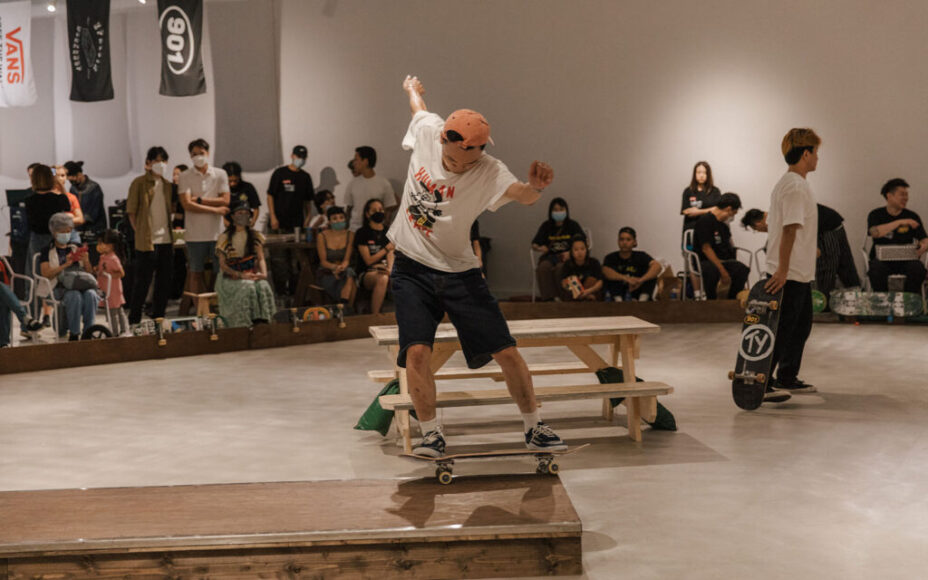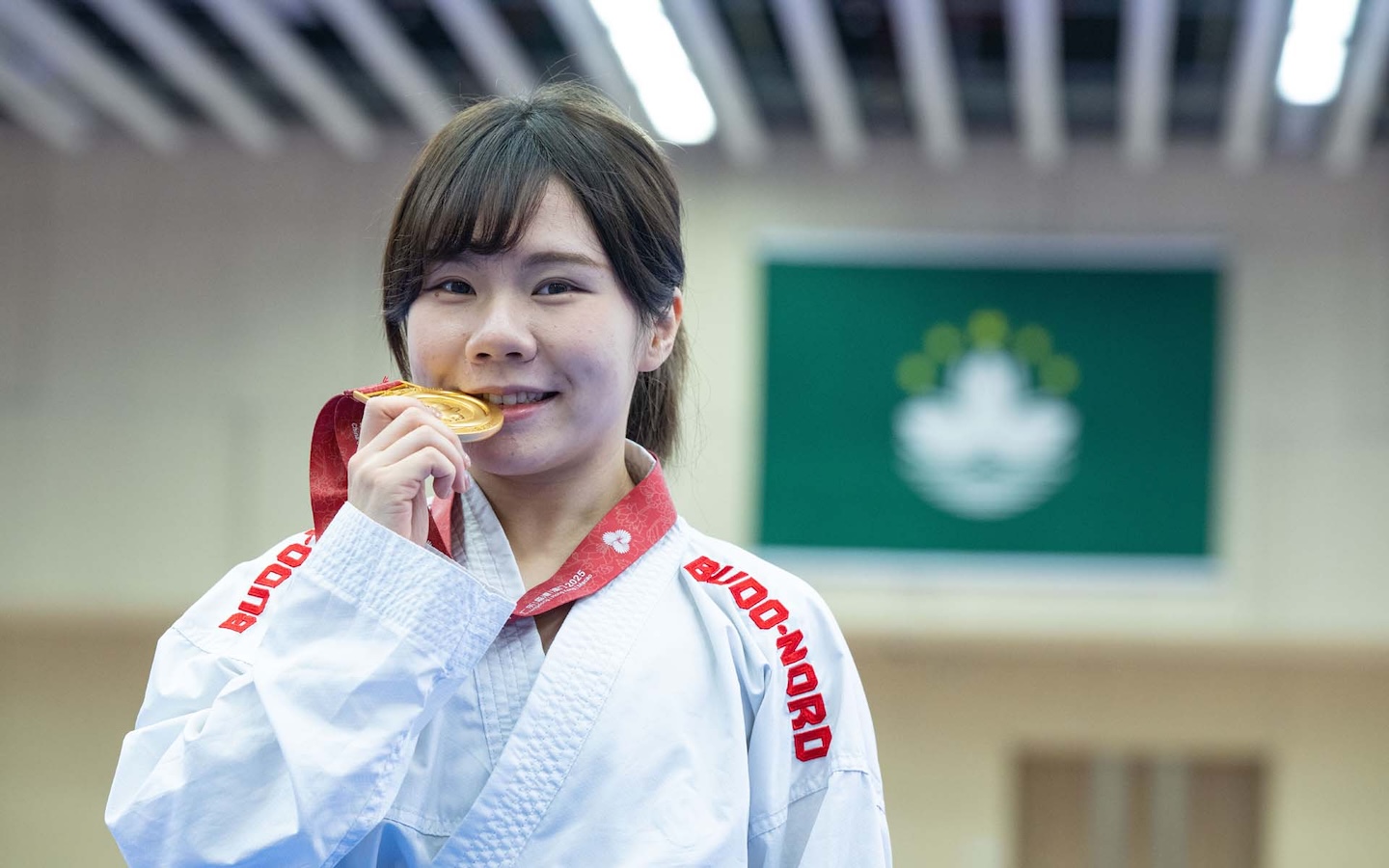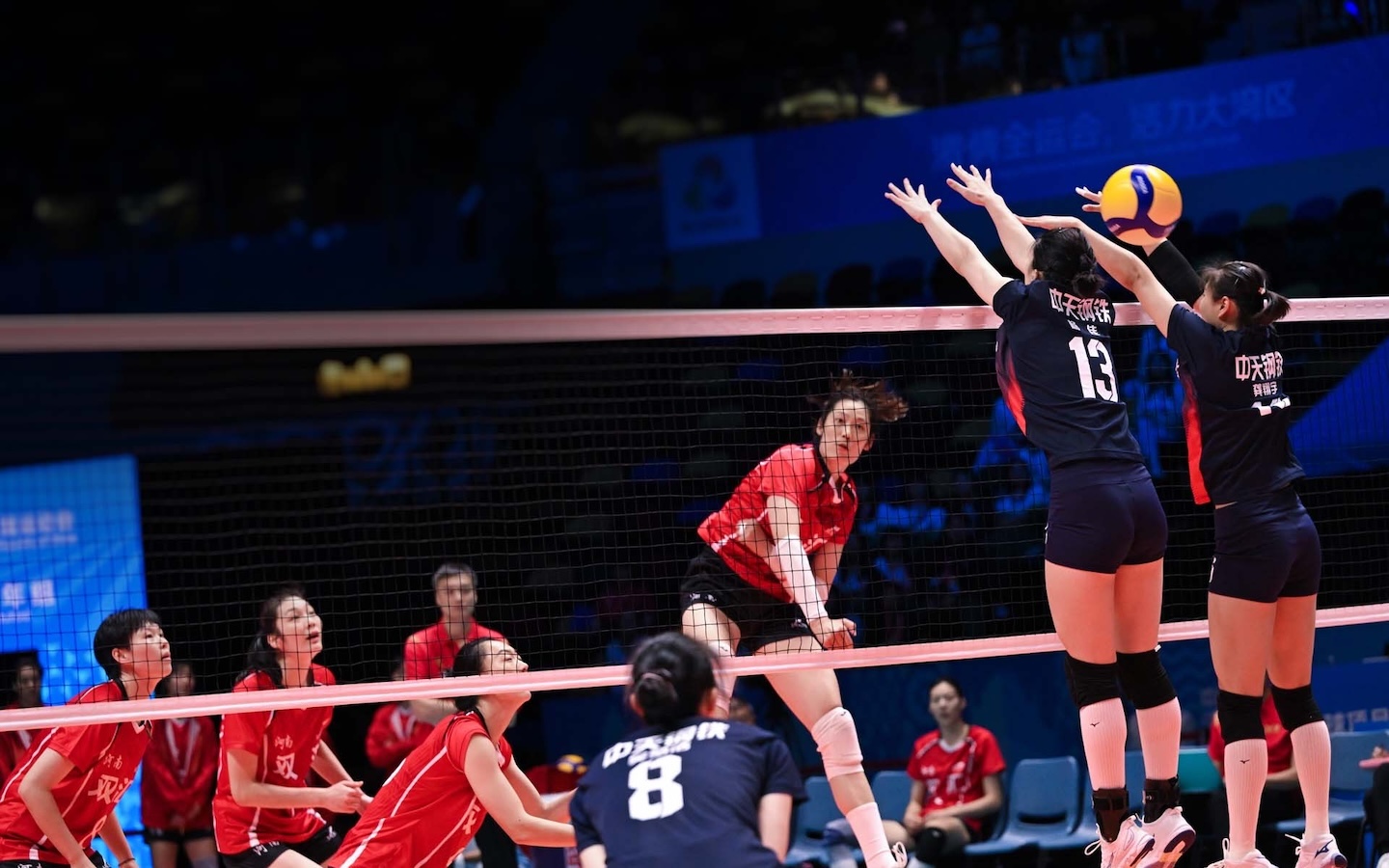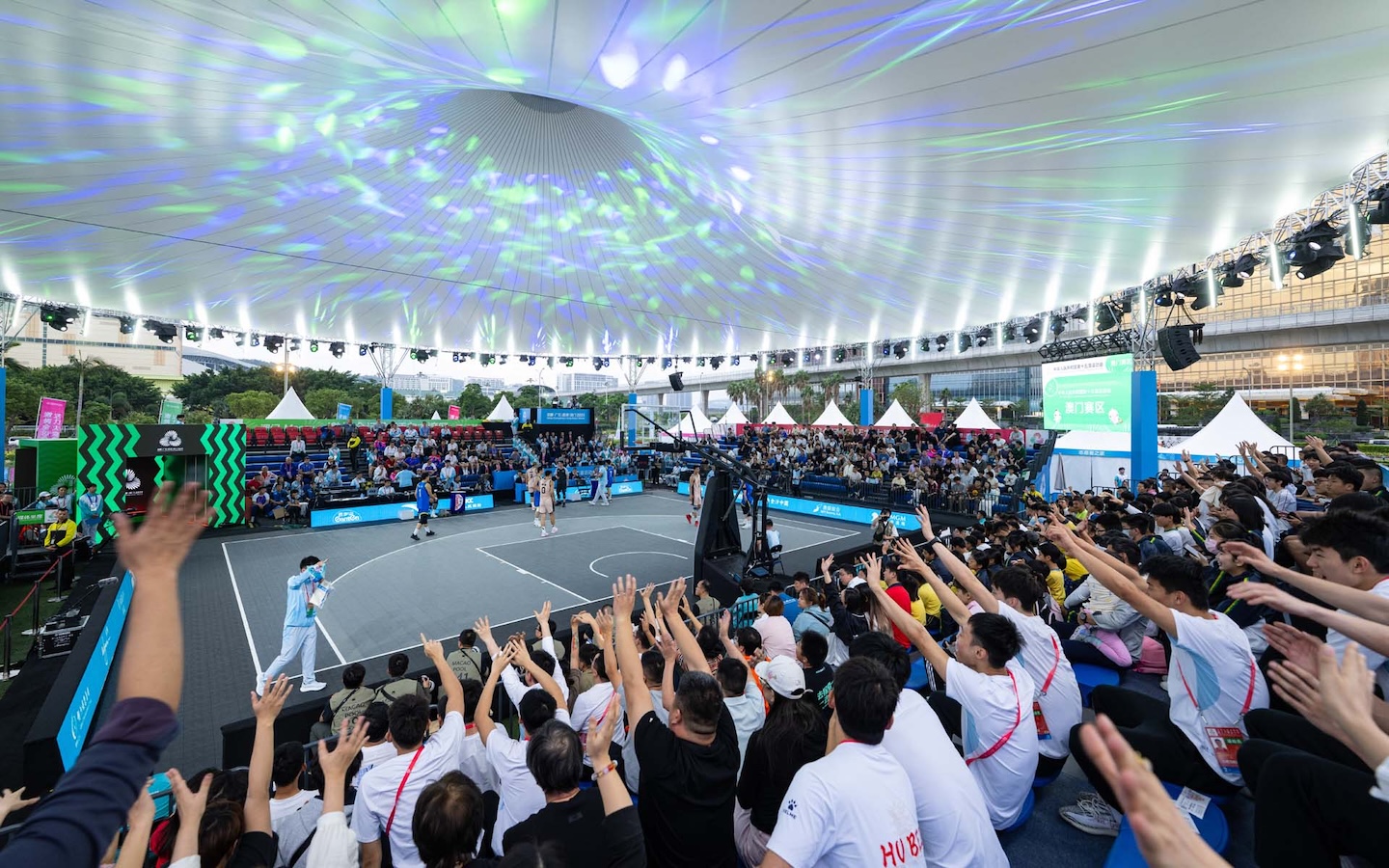Once dismissed as a rebellious pastime, skateboarding has morphed into a global cultural force and respected competitive discipline. Its inclusion in the 2020 Tokyo Olympic Games – delayed until 2021 – cemented its status as a bona fide sport merging athleticism with personal expression.
Macao appears to have taken note: all three of its official skateparks have opened since skateboarding’s Olympic debut, though locals have long been practising their tricks in public areas like Praça da Amizade and the Macau Tower. The city’s first dedicated skatepark, Ride 2 EXIT, opened in late 2021 as an extension of the skateboard shop, EXIT. Then, this past March, two more skateparks launched within eight days of each other. Their arrival signals a growing commitment by local authorities to support the sport’s development.
The Lisboeta Skatepark held its soft opening at the Lisboeta H853 Fun Factory, an entertainment and shopping complex in Cotai, on 15 March. Managed by the Macau Skateboarding Sports Culture and Development General Association (MSSCDGA), the venue hopes to nurture local skateboarders who’ll some day represent Macao on the global stage.
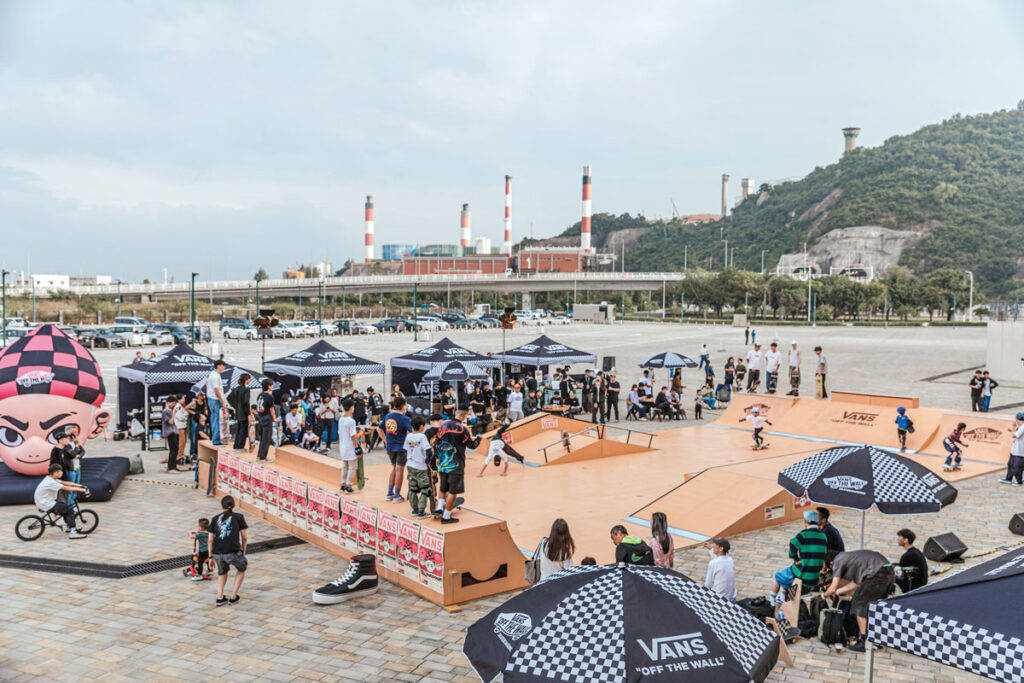
Studio City Sk8te Park followed on 23 March. Also located in Cotai, this rooftop facility celebrated its grand opening with the inaugural SK8TEFest and the finals of the 2025 International Festival of Extreme Sports (FISE) Battle of the Champions. The three-day FISE showdown featured some of the world’s top skateboarders, and was the first event of its kind in the Guangdong-Hong Kong-Macao Greater Bay Area.
In a press release, the senior vice president and property general manager at Studio City, Kevin Benning, described the skatepark as an asset for the government’s ‘tourism+’ strategy.
“By bringing world-class sports facilities and major international sporting events to Macao, we aim to strengthen the city as a City of Sports and further reinforce Macao’s positioning as a World Centre of Tourism and Leisure while offering both locals and tourists more diverse entertainment experiences,” he said.
Inspiring the next generation
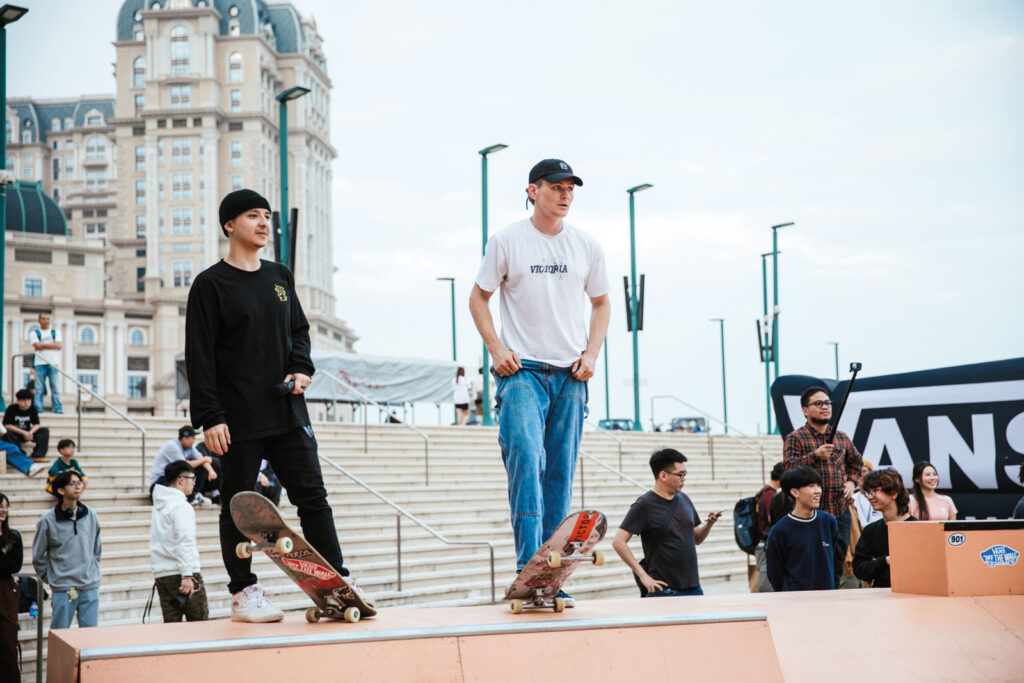
Local skater Diogo de Sousa Silverio sees the new skateparks as game changers for the city’s skaters – who number around 200 – as well as those who’d like to get into the sport. “Having them means everything for the next generation of skateboarders here,” the 30-year-old tells Macao magazine. The parks’ street-focused designs feature proper ramps, grind boxes, quarter pipes and rails that provide a safe and structured environment. “[These features will] allow today’s young skaters to progress much faster than we ever could,” Silverio explains.
When Silverio began skating in the mid-2000s, he and his friends improvised on the streets – jumping staircases, tackling inclines and seeking gaps wherever they could find them. “We didn’t have ramps, quarter pipes or any proper obstacles to train on,” he recalls. “As teenagers, having a real skatepark was one of our biggest dreams.”
Sharing streets and squares with the public presented its own challenges, from complaints by pedestrians to clashes with security guards. “Traditionally, skateboarding was viewed as a ‘naughty’ hobby because we had no choice but to practice in public spaces,” Silverio reflects. But the Tokyo Olympics changed people’s perceptions. “Now, people see skateboarding as a legitimate sport,” he says. “Parents are starting to believe that their skateboard-mad kids could one day become athletes.”
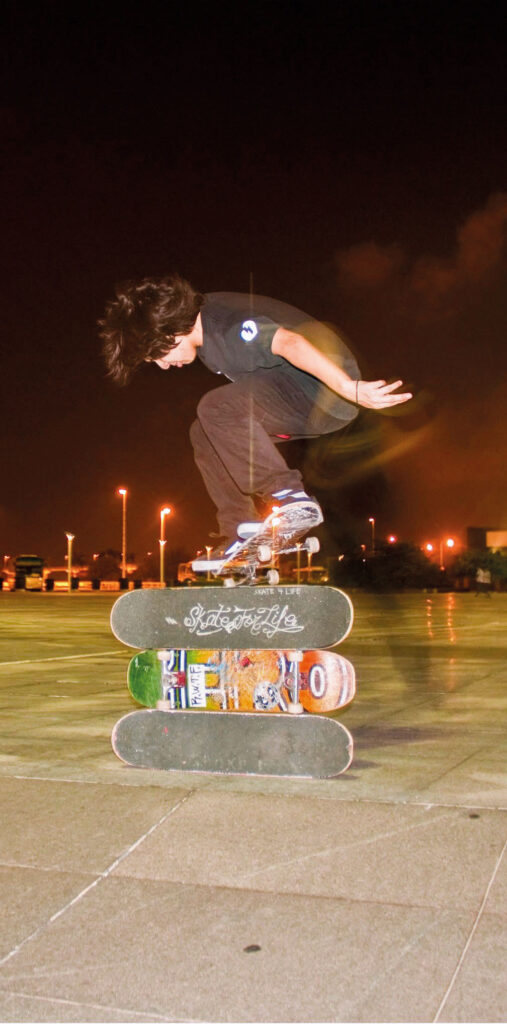
Silverio, who founded MSSCDGA in 2023, works closely with the Lisboeta Skatepark. But that’s just the latest way he’s helping build Macao’s skateboarding community. He and his association have organised many workshops and competitions with the aim of growing the sport from the ground up. These events have utilised makeshift skateparks, constructed out of wood, and included participants from Hong Kong and the mainland. There’s often a ‘sportainment’ quality to skateboarding events, where musicians and DJs are invited to perform – creating a festival-like atmosphere.
A brief history of skateboarding
The world’s first skateboarders were surfers in 1950s California. Looking for something to do when the waves were flat, they attached roller-skate wheels to short wooden planks and took these DIY rigs to the streets. But with poor manoeuvrability, early skateboards had limited appeal. That changed in the 1970s, thanks to two pivotal innovations: the kicktail and polyurethane wheels.
Kicktails – the upward-curved ends of skateboard decks – let skaters pop their boards and pivot with precision, enabling tricks that are now foundational to the sport. Meanwhile, tougher, grippier polyurethane wheels replaced earlier clay versions, dramatically improving control and speed.
These developments made skateboarding much more dynamic, just in time for another factor key to the sport’s rise: a prolonged drought in California. In 1977, the state’s reservoirs hit record lows, prompting a ban on filling backyard swimming pools. Many Southern Californian homes boasted kidney-shaped pools at that time and skateboarders soon discovered that their curved sides formed ideal playgrounds when empty.
Skateboarding went global in the 1980s, while remaining largely underground. Its spread was aided by handheld video cameras and a wave of iconic films shining a light on the subculture. More mainstream attention followed in the 1990s thanks to emerging extreme sports festivals, many of which were broadcast on television. One of these was FISE, which held its first edition near Montpellier, France, in 1997. Skateboarders joined BMX riders, inline skaters, windsurfers and other extreme athletes in what would become one of the world’s premier urban sports festivals.
Top talent enters Macao
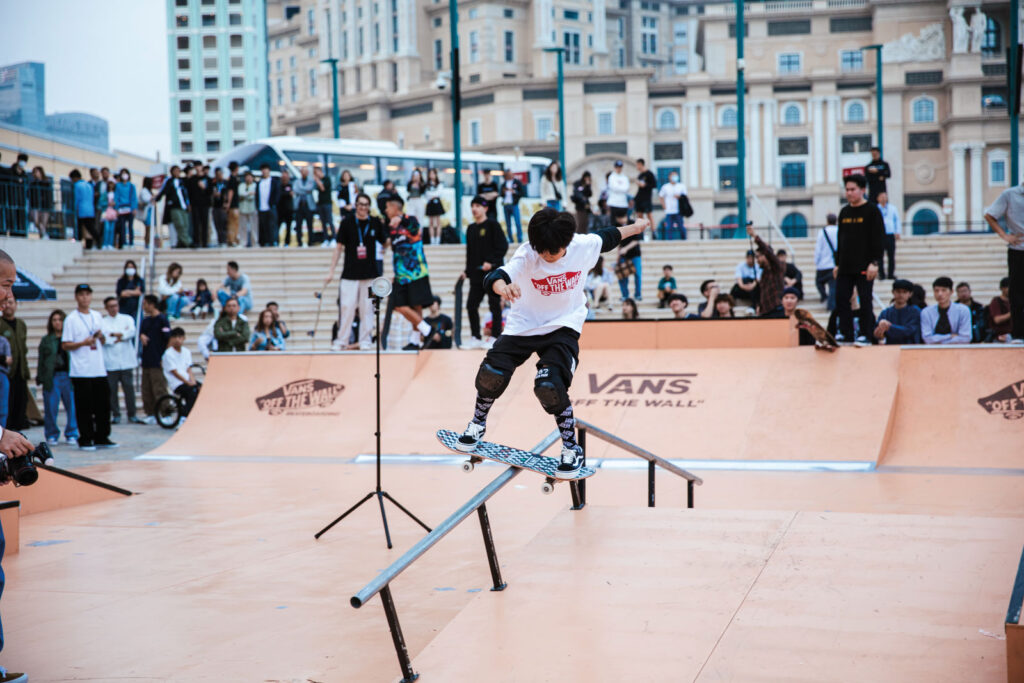
Today, FISE hosts both a central multisport festival in France and a World Series with dedicated competitions in individual sports, including skateboarding. These take place in different locations each year. The model reflects growing professionalism and specialisation across urban sports.
This year, the festival’s skateboarding segment played out in Macao. China’s Chenxi Cui, a 15-year-old from Jinan, Shandong Province, took the crown in the women’s pro division – beating Japan’s Funa Nakayama in what one skateboarding media outlet described as a “clash of technical brilliance and jaw-dropping tricks.” Previously, Cui won gold in the women’s street skateboarding event at the 19th Asian Games, in Hangzhou (she was the youngest Chinese gold medalist that year), and came fourth in the same category at last year’s Olympic Games. In the men’s Battle Of The Champions final, Japan’s Ginwoo Onodera defeated Richard Tury from Slovakia.
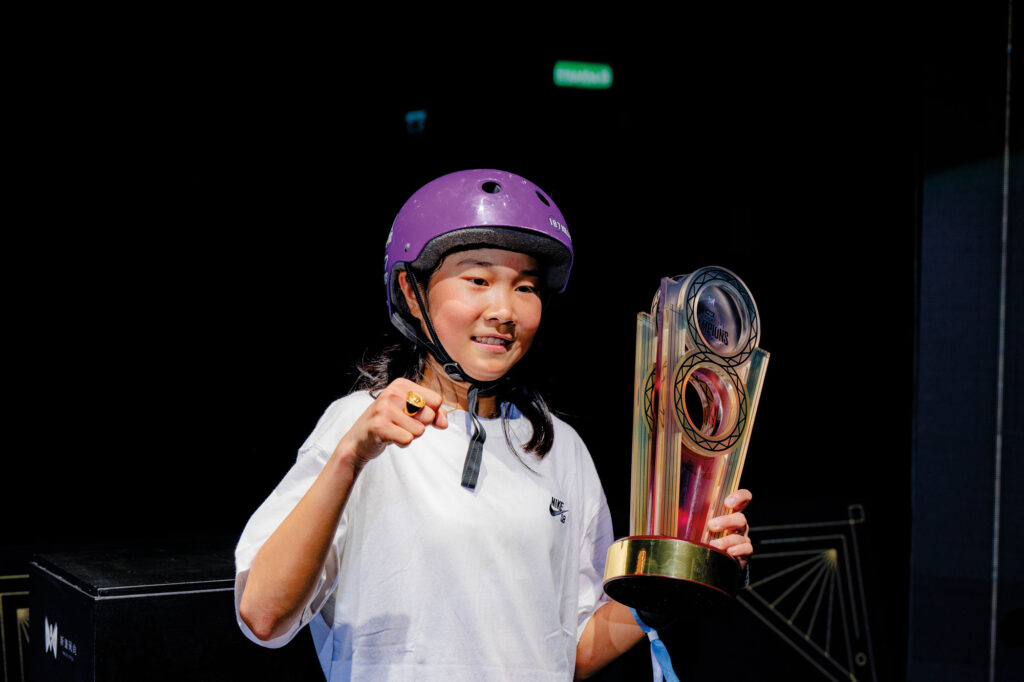
Having these top international skateboarding talents grace Macao was “incredibly inspiring”, according to Silverio. “Seeing what’s possible motivates local skaters to push themselves to the next level.”
He believes events like FISE also broaden public appreciation of the sport, break down cultural barriers and frame skateboarding as a positive force for youth. “It’s not just about the skateboarders. These events show the general public what skateboarding is all about and why it deserves a place in our city’s sports and cultural landscape.”
According to Silverio, the Special Administrative Region is currently home to at least one skateboarder who has the potential to compete at the international level. “Our job is to support him and help him achieve his dreams,” he says. Competitive skateboarders are typically very young, often teenagers like Cui. Silverio never had the chance to compete himself, so he sees in this new generation an opportunity to help others achieve what he couldn’t.
What next?
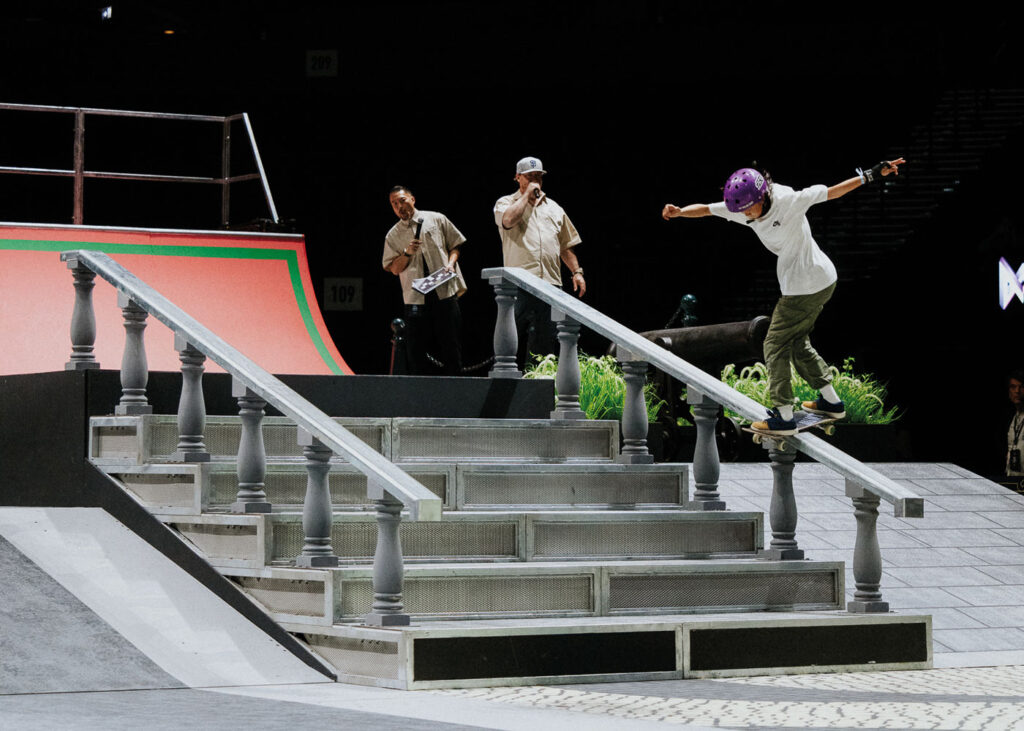
With new facilities and increased exposure, it seems Macao’s skateboarding community is poised for growth. Silverio and the MSSCDGA are all in, viewing the sport as a powerful tool for youth development. “It’s a full-body exercise that improves balance, coordination, and reflexes,” he says. “But more importantly, it’s a creative outlet and a way to connect with others.”
The association plans to use the Lisboeta Skatepark as a training ground and launchpad for emerging talent. Looking further ahead, Silverio would like to see the city become something of a regional hub for urban sports, complete with more skateparks, “skate-friendly” public spaces and regular events.
“Skateboarding in Macao has come a long way since I started in 2007,” he says. “With the support of the community, the government and local businesses, I believe we can take it even further.”
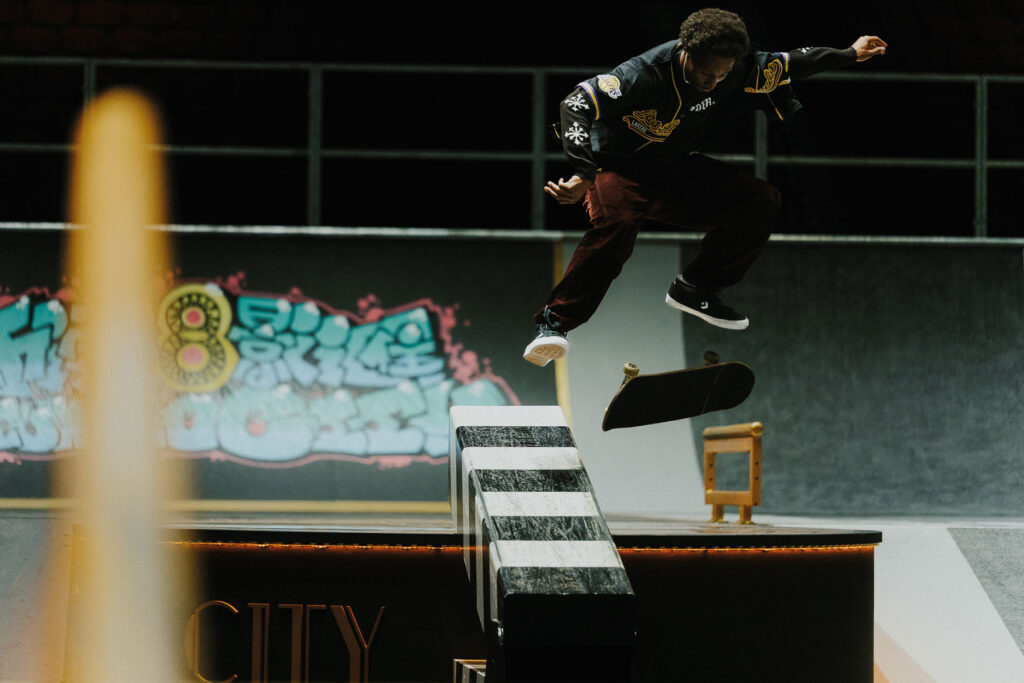
As the veteran skater reflects on his own journey, he’s grateful for all skateboarding has given him. “Skateboarding has been my go-to activity for most of my life and helped me find my purpose, connect with others, and stay true to myself,” he says. It’s also taught him to persevere in the face of challenges. “When you’re trying to land a new trick, it takes so many attempts, but you keep going until you get it. That mindset carries over into other aspects of life.”
